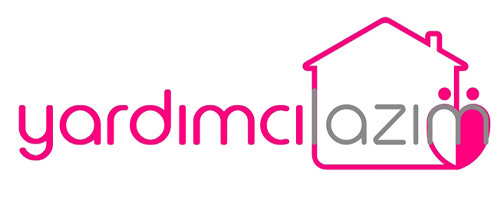Maintaining sobriety can be a difficult process, however, a sober living house may provide you with the kind of structure and support you’ll need to maintain your sobriety. If you’re having a hard time adjusting to a sober life, reach out to a mental health professional who specializes in addiction and substance use. The duration https://ecosoberhouse.com/ of stay in a sober living home varies based on individual needs and progress in recovery. Residents typically stay for several months to over a year, allowing ample time to establish stability and coping mechanisms.
- All sober housing has policies and guidelines to which their residents must adhere.
- Another option would be to finance your stay at a sober living facility.
- Since most states don’t regulate sober living homes like they do with treatment facilities, it’s important to do your research.
- Many individuals continue attending 12-step meetings, group counseling, or outpatient therapy to maintain their progress.
- It also provides a therapeutic space where you can get support from peers who are also recovering from substance abuse.
- Comprehensive provider profiles backed by 10+ years of research.
Level 1 Recovery Residences include and closely resemble Oxford Houses
And although the staff cannot offer formal treatment services, halfway houses are affiliated with centers that do. A sober living home is a structured, substance-free residence that supports individuals recovering from addiction, typically after completing a rehabilitation program. Designed as transitional environments, sober living homes provide a crucial bridge for individuals moving back into society. They emphasize peer support, accountability, and adherence to house rules to maintain a sober living environment. Going home can often put a person in a high-risk situation What are sober living homes for relapse after rehab. This risk is usually high if the person’s community has a drug problem.
- You might be clean but your life still isn’t stable—maybe you don’t have a job, your relationship issues are insurmountable, or your mental health still isn’t strong.
- Others direct you to outside programs like the Texas alcohol and drug addiction treatment programs for further assistance.
- Both sober living homes and halfway houses support people recovering from substance use disorders.
- And although the staff cannot offer formal treatment services, halfway houses are affiliated with centers that do.
How do sober living homes compare to halfway houses regarding amenities and living conditions?
Others may limit or restrict cell phone and internet access because they can act as triggers that could lead to relapse. The first Oxford House was opened in 1975 in Maryland when the founder’s halfway house closed due to funding cuts. Since then, homes operating under the Oxford House model have spread across the country – as of 2012, there were 1,500 homes. Comprehensive provider profiles backed by 10+ years of research. Since 2013, our expert team has built comprehensive resources you can trust to find the right treatment for you.
We’re more than just a men’s sober living facility in Dallas, TX
Sober living homes are places where someone in recovery can find independence while learning to seek and obtain community resources necessary for long-term recovery. People can experience specific challenges in recovery depending on their gender. By providing separate homes, facilitators can provide gender-specific care to improve the chances of success. BetterHelp can connect you to an addiction and mental health counselor. This phase focuses on simulating regular life as much as possible. So, residents get assigned house chores and are encouraged to participate in activities outside the house.


Through music, residents can connect, express themselves, and find their unique rhythm in early recovery. This creative, collaborative atmosphere fosters community and helps build essential life skills as residents navigate their journey to lasting sobriety. Lantana Living offers a 6-week structured housing program for participants of Lantana Recovery’s PHP programming, emphasizing the social recovery model. Residents benefit from a substance-free environment, structured activities, and social accountability structures, fostering essential skills for the early recovery process. The opportunity for peer support in sober living homes plays a significant role in recovery. Residents interact and bond over shared challenges, which encourages mutual accountability.
Instead, you can contact the third-party networks listed below. Myrtle Beach Recovery is a residential drug and alcohol rehab center outside of Myrtle Beach, SC. We provide rehab programs that help you to build positive habits needed for a healthy and marijuana addiction sober life. Our top priority is to give our residents the tools they need to improve their opportunities for happiness and success in sobriety and throughout their daily lives. Our vision is to provide anyone actively working on getting and staying sober with a high-quality home where they can live in comfort and stability.
- But they can be anywhere between $300 and $2,000, depending on the neighborhood and amenities.
- This article outlines ten effective strategies to avoid drug addiction, ensuring a healthier and more fulfilling life.
Meeting these criteria helps individuals transition from treatment to independent living while maintaining their sobriety. Halfway houses provide transitional living arrangements for persons in recovery from substance addiction. Its residents consist of persons just released from incarceration, are homeless, or mandated by a court order.

Halfway houses, however, might focus more on supervision and compliance with strict policies, reflecting a more correctional approach in managing residents. We do not receive any fee or commission dependent upon which treatment or provider a caller chooses. Morgan is a mental health counselor who works alongside individuals of all backgrounds struggling with eating disorders. Morgan is freelance mental health and creative writer who regularly contributes to publications including, Psychology Today.
